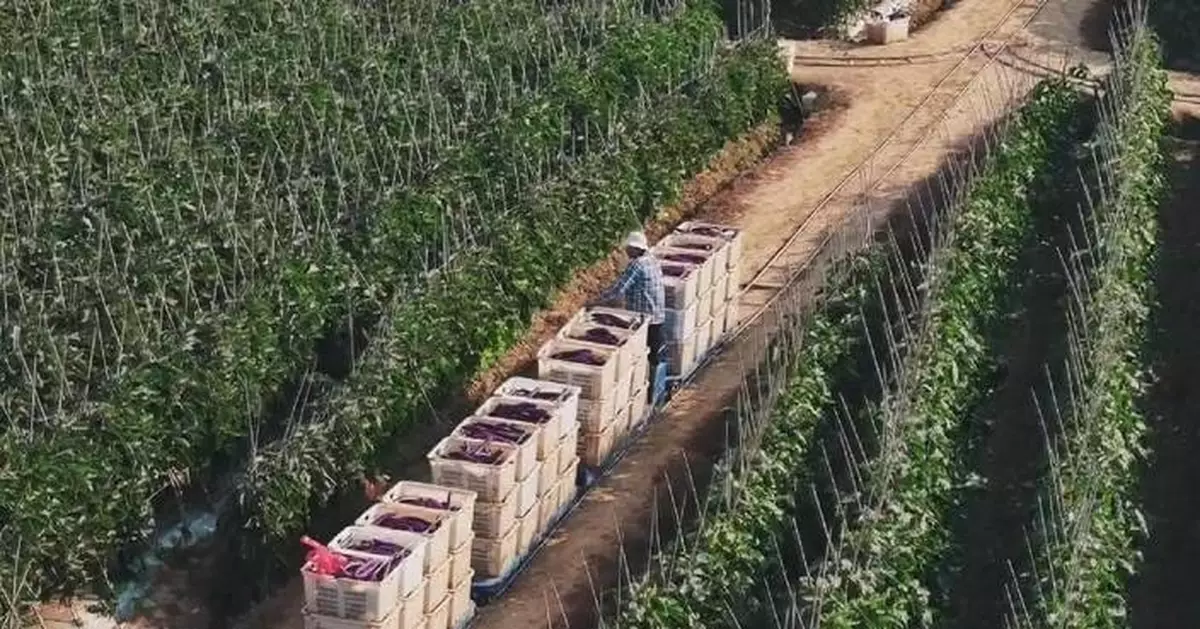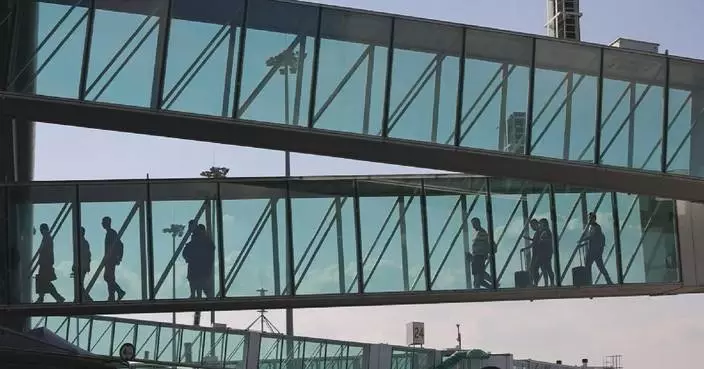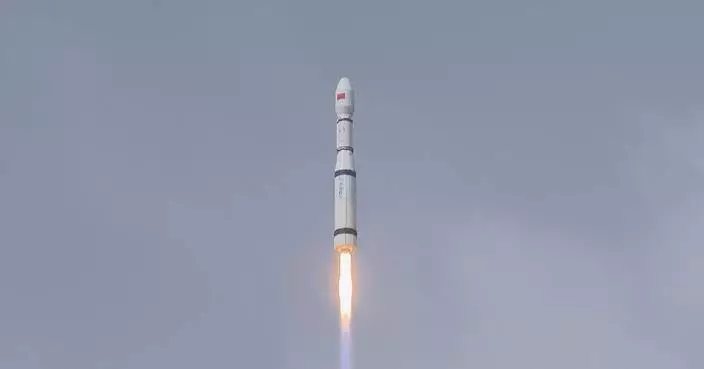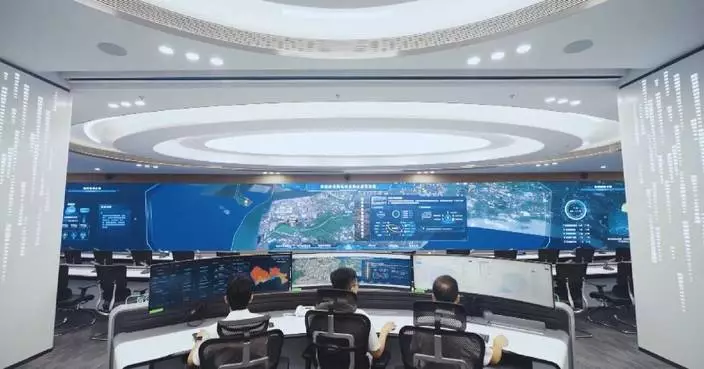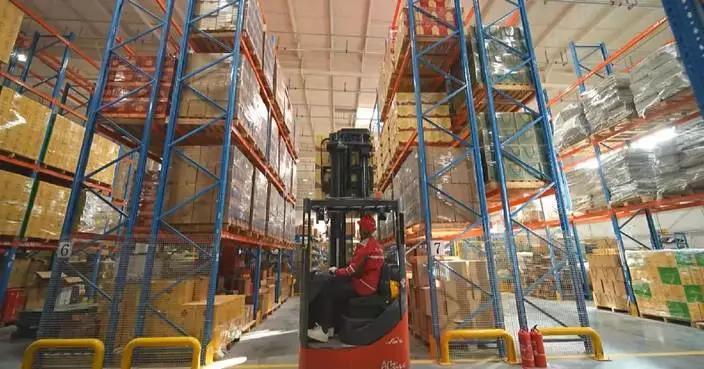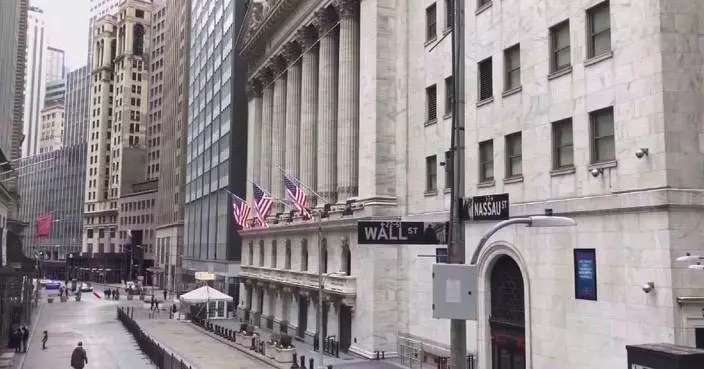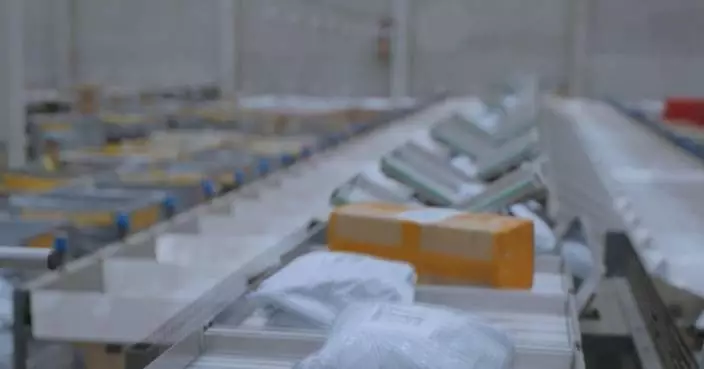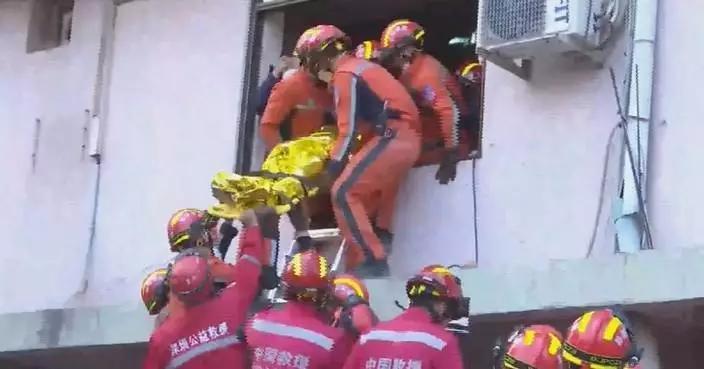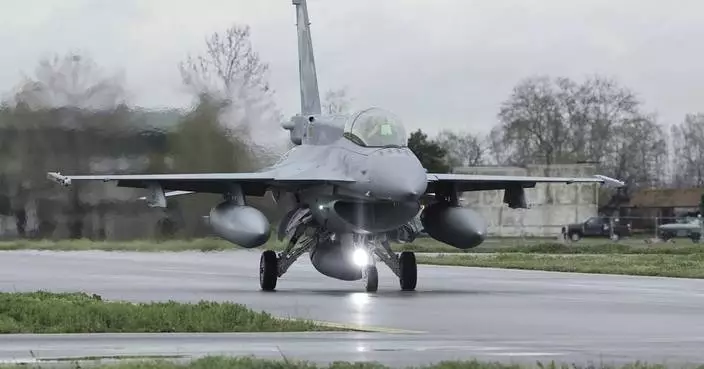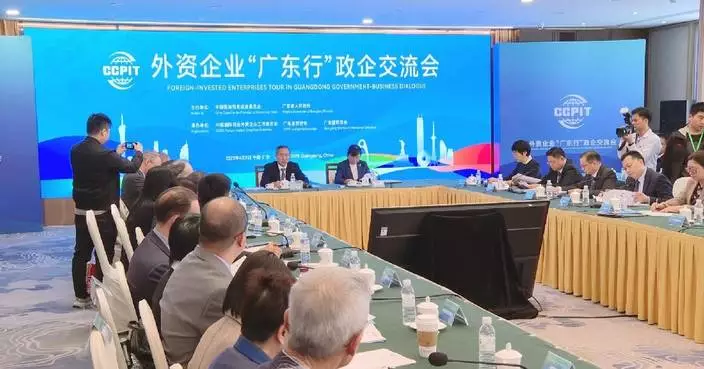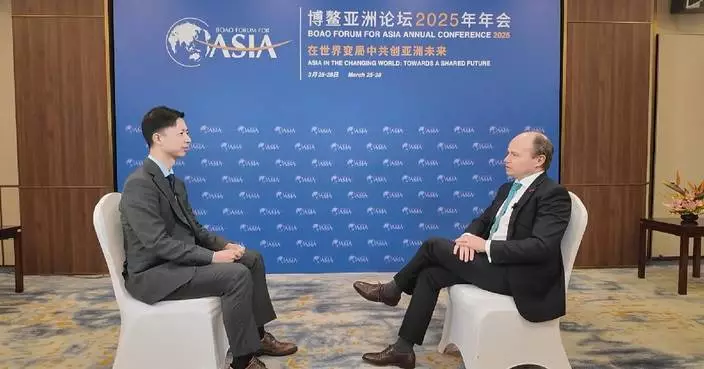A novel rail system winding through the fields of Gengma County in southern China's Yunnan Province is reshaping farm operations, as smart "mini trains" designed for agricultural use significantly accelerate vegetable transport and lower labor costs.
In the vegetable growing base of Mengding Town, workers harvest eggplants and load them onto an unmanned "mini train." With a remote control, the train then transports the baskets directly from the fields to the packaging workshop, where the vegetables are prepared for sale.
"We've been working in the eggplant fields for over four years. In the past, we had to carry the vegetables by hand, which was toilsome. Now, with the mini train, it's much more convenient," said a local worker.
The "mini train" is a narrow single-track transport vehicle tailored for vegetable farms in rugged terrains. Equipped with an electric motor, flat cargo platforms, and a modern track system, it can carry up to 200 kilograms at a time. The train features advanced functions including stable uphill and downhill transport, flexible turning, forward and reverse movement, and emergency braking, making it capable of transporting vegetables, fertilizers, and other agricultural supplies across the complex terrain of the mountains, cutting down on time and labor costs.
"The transport works well whether it's rainy or sunny. We've reduced the need for workers by half compared to before. My farm spans three hectares, and the mini train can reach every corner of it," said Li Yan, an eggplant grower.
In Gengma County, where local authorities have long faced challenges with mechanizing agriculture in the hilly areas, innovative solutions like these "mini trains" are allowing for more efficient farm operations. The use of smart farming equipment, including drones for seeding and the mini trains for transport, is rapidly transforming the region's agricultural practices and helping to increase farmers' incomes.
The Mengding Town alone boasts over 93,000 hectares of vegetable production, with an annual output of 480,000 tons valued at 2.5 billion yuan (about 350 million U.S. dollars).
"Since its introduction in 2021, over 60 farms in Mengding have adopted mini trains to transport vegetables from the fields to designated packaging sites. We will further invest in agricultural technology and promote its application to benefit even more farmers," said Chen Juan, a senior agricultural specialist at Mengding Industrial Development and Technology Service Center.
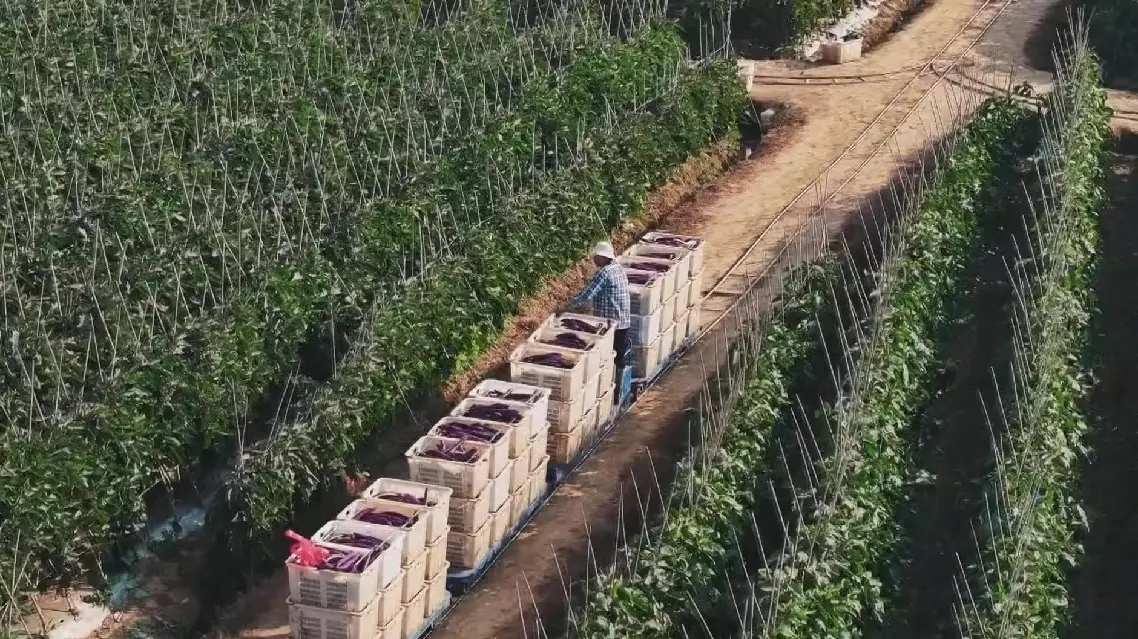
Smart 'mini trains' revolutionize vegetable transport in Yunnan's mountainous county


